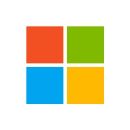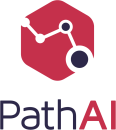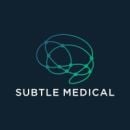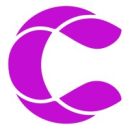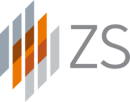The healthcare sector has long been an early adopter of technological advances. These days, machine learning — a subset of artificial intelligence — plays a key role in many health innovations, including the development of new medical procedures, the handling of patient records and the treatment of chronic diseases.
How Is Machine Learning Used in Healthcare?
Machine learning is applied in a wide range of healthcare use cases, and much of its promise begins with its ability to handle complex data.
Machine Learning in Healthcare
- Predicting and treating disease
- Providing medical imaging and diagnostics
- Discovering and developing new drugs
- Organizing medical records
The healthcare industry has been compiling increasingly larger data sets, often organizing this information in electronic health records (EHRs) as unstructured data. With the help of natural language processing, machine learning rearranges this data into more structured sets that healthcare professionals can quickly glean actionable insights from.
Machine learning and AI have also impacted drug discovery and development for pharmaceutical companies. The technology has already supported central nervous system clinical trials, and drugmakers hope ML will predict the ways patients will respond to various drugs and identify which patients stand the greatest chance of benefiting from the drug.
In addition, telemedicine has reaped the rewards of machine learning developments in healthcare, as some machine learning companies are studying how to organize and deliver patient information to doctors during telemedicine sessions, as well as capture information during virtual visits to streamline workflows.
Benefits of Machine Learning in Healthcare
Machine learning has much to offer to the healthcare industry. Below are just a few of the benefits organizations are realizing by applying machine learning in healthcare.
Faster Data Collection
Healthcare professionals use wearable technology to compile real-time data, which machine learning can quickly process and learn from. That’s why the U.S. Food and Drug Administration has been working to integrate ML and AI into medical device software.
Accelerated Drug Discovery and Development
By combining machine learning and deep learning, researchers develop models to more accurately predict successful drug molecules. This speeds up the drug discovery process.
Cost-Efficient Processes
Machine learning algorithms can quickly scan EHRs for specific patient data, schedule appointments with patients and automate a range of procedures. Healthcare workers are then empowered to focus their attention on more urgent matters.
Personalized Treatment
By crunching large volumes of data, machine learning technology can help healthcare professionals generate precise medicine solutions customized to individual characteristics. Machine learning models can also predict how patients react to certain drugs, allowing healthcare workers to proactively address patients’ needs.
Examples of Machine Learning in Healthcare
Given all these applications and advantages, we rounded up companies that use machine learning in healthcare.
Machine Learning in Healthcare Examples
- Microsoft
- Tempus
- Tebra
- PathAI
- Ciox Health
- Beta Bionics
- Subtle Medical
- Pfizer
- Insitro
- BioSymetrics
Founded: 2017
Location: Boston, Massachusetts
How it’s using machine learning in healthcare: Asimov is a genetic design company with a data-driven approach that enables biological understanding and actionable insights for altering genetic systems. Asimov uses synthetic mammalian biology to build tools for programming living cells. It uses computer-aided design and machine learning for computational models with the goal of developing genetically engineered therapies.
Founded: 2018
Location: Denver, Colorado
How it’s using machine learning in healthcare: Strive Health offers technology and services with the goal of improving the quality of kidney disease care. The healthtech company’s CareMultiplier platform relies on machine learning algorithms to provide data insights that fuel personalized plans for treating and managing kidney conditions.
Founded: 2011
Location: Framingham, Massachusetts
How it’s using machine learning in healthcare: Definitive Healthcare specializes in commercial intelligence for organizations across the healthcare industry, including medical device companies, providers and biotech companies. Atlas AI is Definitive Healthcare’s analytics solution that uses artificial intelligence, machine learning, data modeling and other advanced technologies to convert large amounts of data into insights meant to inform business decisions.
Founded: 2012
Location: San Mateo, California
How it’s using machine learning in healthcare: Evidation’s mobile app provides users with rewards for healthy behaviors and gives them access to educational health content. Members also have the option of participating in healthcare research. Evidation has provided its research partners across the healthcare and life sciences landscape with data from more than 1.3 million consenting research participants. To support Covid-19 research, Evidation used machine learning modeling to target individuals with high risk of infection.
Founded: 2019
Location: Boston, Massachusetts
How it’s using machine learning in healthcare: Cohere Health builds technology to streamline utilization management for health plans. Through predictive solutions powered by artificial intelligence and machine learning, the Cohere Unify Platform can create personalized, data-driven patient care plans made up of pre-approved services. It saves time by automating steps across the prior authorization workflow.
Founded: 2016
Location: Menlo Park, California
How it’s using machine learning in healthcare: GRAIL focuses on developing solutions for early cancer detection through a combination of expertise in genomics and technology. The company’s Galleri test identifies DNA fragments in patients’ blood samples and relies on machine learning algorithms to determine whether the cells they came from are cancerous.
Founded: 1923
Location: Bagsværd, Denmark
How it’s using machine learning in healthcare: Global pharmaceutical company Novo Nordisk’s team members work toward a shared goal of bettering the lives of people living with serious chronic diseases. For example, its Modelling and Predictive Technologies department applies machine learning algorithms and other advanced technologies in order “to automate semi-complex human cognitive tasks” as part of its efforts to achieve fast, reliable drug development.
Founded: 2019
Location: Boston, Massachusetts
How it’s using machine learning in healthcare: Linus Health is a digital health company that uses machine learning to develop advanced screening for the early detection of Alzheimer’s and other degenerative neurological conditions. Offering these advanced cognitive function assessments and monitoring for changes to brain health, the company uses AI to analyze data and return sophisticated diagnostic results.
Founded: 1975
Location: Redmond, Washington
How it uses machine learning in healthcare: Microsoft’s Project InnerEye harnesses computer vision and machine learning to differentiate between tumors and healthy anatomy using 3D radiological images that assist medical experts in radiotherapy and surgical planning. With this AI-based approach, Microsoft aims to produce medicine that is tailored to the unique needs of each patient.
Founded: 2015
Location: Chicago, Illinois
How it uses machine learning in healthcare: Tempus aims to make breakthroughs in cancer research by gathering massive amounts of medical and clinical data to deliver personalized treatments for patients. Analyzing its data library with AI-powered algorithms, Tempus helps with genomic profiling, clinical trial matching, diagnostic biomarking and academic research.
Founded: 2022
Location: Corona del Mar, California
How it uses machine learning in healthcare: To support the tech and business needs of independent practices, Tebra’s Kareo product offers a cloud-based clinical and business management platform. Organizations can transfer patient health and financial data over to Kareo’s billing platform, making it easier to manage records and complete transactions. In addition, Kareo applies AI technology to automate repetitive tasks, cutting down even more time and operational costs for practitioners.
Founded: 2016
Location: Boston, Massachusetts
How it uses machine learning in healthcare: PathAI’s technology employs machine learning to help pathologists make quicker and more accurate diagnoses. The company also offers AI tools for compiling patient info, processing samples and streamlining other tasks for clinical trials and drug development. A partnership network of biopharma groups, labs and clinicians equips PathAI with the resources to provide more effective treatments for patients.
Founded: 1976
Location: Alpharetta, Georgia
How it uses machine learning in healthcare: Ciox Health powers its Datavant Switchboard platform with machine learning to give healthcare professionals faster access to patient data. Organizations can develop personalized controls within the platform, allowing staff to submit requests for specific types of data. Ciox Health’s technology also follows privacy compliance rules to keep patients’ electronic health records secure.
Founded: 2015
Location: Boston, Massachusetts
How it uses machine learning in healthcare: To make the lives of diabetes patients more stress-free, Beta Bionics has developed a wearable “bionic” pancreas called iLet. This device constantly monitors blood sugar levels in patients with Type 1 diabetes, so patients don’t have to shoulder the burden of tracking their blood glucose levels on a daily basis.
Founded: 2017
Location: Menlo Park, California
How it uses machine learning in healthcare: Subtle Medical taps into the potential of AI, machine learning and deep learning to produce clearer medical images for radiologists. With its product SubtleMR, the company is able to block out image noise and focus on areas like the head, neck, abdomen and breast. Higher-quality images make it easier for radiologists to finish exams, reducing the time it takes for patients to receive care and diagnoses.
Founded: 1848
Location: New York, New York
How it uses machine learning in healthcare: With the help of IBM’s Watson AI technology, Pfizer uses machine learning and natural language processing for immuno-oncology research about how the body’s immune system can fight cancer. This partnership enables Pfizer to analyze large amounts of patient data and develop faster insights on how to produce more impactful immuno-oncological treatments for patients.
Founded: 2018
Location: San Francisco, California
How it uses machine learning in healthcare: Insitro combines machine learning and computational biology to make drug development more efficient and cost-effective. After building predictive models from massive biological data sets, the company applies machine learning to sift through this data and reveal crucial trends, such as new disease subtypes. Health professionals at Insitro can then adjust drugs and medicines to better protect patients from evolving diseases.
Founded: 2015
Location: Boston, Massachusetts
How it uses machine learning in healthcare: Via its machine learning platform and contingent AI, BioSymetrics helps organizations analyze large amounts of raw data to streamline the development of precision medicine. The company has access to millions of electronic health records and human-relevant disease models, allowing its platform Elion to deliver more comprehensive insights on how to improve medicines.
Founded: 2018
Location: New York, New York
How it uses machine learning in healthcare: ConcertAI uses machine learning to analyze oncology data, providing insights that allow oncologists, pharmaceutical companies, payers and providers to practice precision medicine and health. The company’s product RWD360 serves as an extensive database for tumor clinical data, so healthcare professionals can fine-tune treatments with demographic and clinical patient info.
Founded: 2015
Location: Fully Remote
How it uses machine learning in healthcare: Orderly Health serves organizations with a B2C concierge chatbot that interacts via text, email, Slack and video conferencing. The company’s goal is to help employers and insurers save time and money on healthcare by making it easier to understand their benefits and locate the least expensive providers.
Founded: 2012
Location: Santa Monica, California
How it uses machine learning in healthcare: MD Insider’s platform uses machine learning to better match patients with doctors. After collecting data from thousands of institutions, machine learning technology analyzes physician factors such as years of experience and quality of service. This way, health networks can pair patients with doctors who are able to provide treatments that meet their individual needs.
Founded: 2010
Location: New York, New York
How it uses machine learning in healthcare: Prognos Health gives healthcare organizations more complete patient profiles by using machine learning to compile and analyze data from prescriptions, medical claims, lab results and other sources. With the company’s marketplace Prognos Factor, companies can quickly sell and acquire health data to detect diseases, underwrite policies and note gaps in care.
Founded: 2012
Location: New York, New York
How it’s using machine learning in healthcare: Flatiron Health makes digital solutions to advance oncology, from research to patient care, and the company employs technologies like machine learning to support its mission. For example, its Protocol Optimization and Patient Identification offering for clinical research relies on machine learning to process unstructured data and streamline screening for potential trial candidates.
Founded: 2015
Location: Santa Barbara, California
How it’s using machine learning in healthcare: Artera offers a SaaS in digital health that sends communications in more than 109 languages to patients through their preferred electronic channel. It aims to make health communications more useful and accessible by analyzing conversations between patients and staff.
Founded: 2016
Location: New York, New York
How it’s using machine learning in healthcare: Cedar’s platform enables simplified, transparent healthcare billing processes, supporting both patients and providers. The healthtech company offers a discount solution that’s powered by a machine learning model designed to identify the right patients to receive discounts tailored to their financial circumstances. The technology is aimed at improving care affordability without compromising a provider’s bottom line.
Founded: 1987
Location: Cincinnati, Ohio
How it’s using machine learning in healthcare: PatientPoint personalizes healthcare experiences by using machine learning to streamline provider workflows. It analyzes vast amounts of healthcare data to deliver tailored messages to patients and drive treatment adherence. The company's machine learning solutions can also be used to help monitor performance for digital engagement campaigns and detect anomalies.
Founded: 2021
Location: San Francisco, California
How it’s using machine learning in healthcare: Plenful aims to enable innovation across administrative operations for health systems, pharmacies, provider groups and others in the healthcare space. Its workflow automation platform is powered by machine learning and AI that’s tailored to an organization’s specific data and processes. The technology can streamline prior authorization workflows, for example, and automate manual data entry for document processing.
Founded: 1983
Location: Evanston, Illinois
How it’s using machine learning in healthcare: Management and technology consultancy ZS provides a tailored machine learning approach to support clients across healthcare. It applies models to improve patient outcomes, accelerate drug development and optimize healthcare operations. The company helps organizations harness data and scale AI across teams.
Founded: 2019
Location: South San Francisco, California
How it’s using machine learning in healthcare: AKASA leverages generative AI and ML to automate and optimize the healthcare revenue cycle, reducing administrative tasks so staff can focus on higher-value work. According to the company, its machine learning engineering team focuses on turning ML research into real-world solutions that deliver value.
Founded: 2010
Location: Austin, Texas
How it’s using machine learning in healthcare: Iodine Software specializes in providing AI-powered clinical intelligence solutions. Its machine learning engine, CognitiveML, analyzes patient records in real time to generate predictive insights that healthcare professionals can use to enhance care delivery and management.
Founded: 2020
Location: New York, New York
How it’s using machine learning in healthcare: Dandy is digitizing dental practices through its solutions ecosystem, which includes a 3D tooth segmentation tool that uses machine learning models to analyze scans. By embedding machine learning into the workflow, the company says dentists can shift from analog processes to faster, more accurate digital care.









